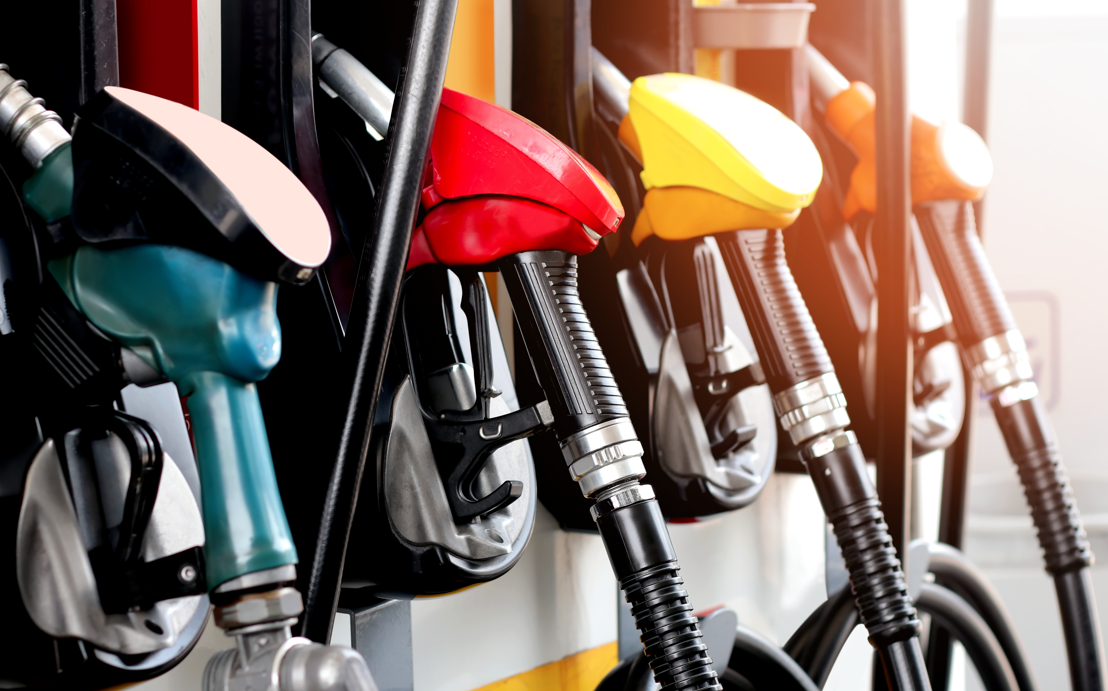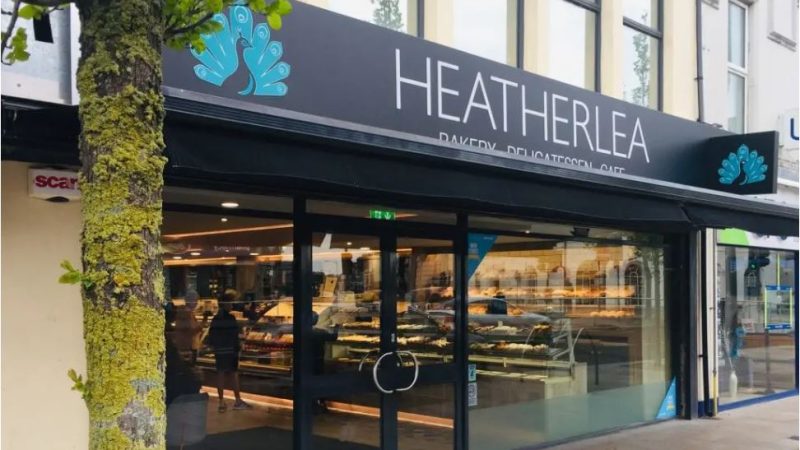Panic buying sparks fuel shortages as NI customers head for border: Special Report

Panic buying at the pumps returned with a vengeance this week as customers raced to fill up their cars before unleaded and diesel prices rise any further.
Retailers in Northern Ireland also fear they will see an exodus of customers heading across the border to load up on fuel as UK pump prices climbed to record levels.
This week customers reported that diesel supplies had run out at a number of filling stations in Northern Ireland, including Tesco in Glengormley, Newtownards and Lisnagelvin and Sainsbury’s in West Belfast.
A spokesman for the forecourt at Sainsbury’s in west Belfast said diesel supplies had run out last night, but unleaded was still available.
The RAC said pump prices broke records once again on Wednesday.
New records
Fuel spokesman Simon Williams said: “The average price of both petrol and diesel climbed to new records again on Wednesday.
“Unleaded is now 159.57p a litre while diesel increased by another 2p to 167.37p – making for a rise of more than 5p in two days. A tank of petrol is now almost £88 while diesel has now gone over £92.”
Diesel appears to be on a clear path to £1.70 a litre, he said.
“As this is an average price, drivers will be seeing some unbelievably high prices on forecourts as retailers pass on their increased wholesale costs,” he said.
“But there was a hint of better news yesterday on the wholesale market with substantial drops in both petrol and diesel which could lead, in a week or so, to a slight slowing in the daily pump price increases and records being broken less frequently.”
UK government should follow suit
Retailers in Northern Ireland say they expect to see an exodus of thousands of customers heading across the border to fill up at cheaper forecourts following the Republic’s announcement of excise duty cuts of 20c per litre on petrol and 15c per litre of diesel.
Retail NI urged the UK government to follow suit and immediately introduce a package of measures to reduce fuel duty and cancel the planned hike in National Insurance.
Chief Executive Glyn Roberts said: “Our members are experiencing out of control energy costs, which is impacting on the running of their businesses. With the huge increases in petrol and diesel set to continue for the foreseeable future, we believe the UK Government should immediately reduce fuel duty cost and cancel the planned increase on National Insurance.
“These actions would not only assist independent retailers, it will also help working families who are struggling to pay for petrol and diesel.
“There is a perfect storm of problems facing our economy and the Government needs to listen to the business community and more importantly act.”
Little impact
However, Irish Government cuts in excise duty on petrol and diesel were expected to make little impact on pump prices that have soared due to Russia’s war on Ukraine.
As the cuts kicked in, the average diesel price in the Republic had soared to an all-time high of €2.04c a litre, and petrol had risen to €2.01, with prices are predicted to continue rising. While some stations have reached highs of diesel costing €2.14 per litre, others were selling the same amount for as little as €1.95 yesterday afternoon.
The soaring fuel cost is in stark contrast to last year when the national average price of a litre of unleaded was €1.25, and diesel was €1.17.
A Government cut in excise duty, which came into force at midnight, is set to take 20c off the price of a litre of petrol and 15c from a litre of diesel.
However, the effect will not be felt at the pumps for a number of days and the Government and fuel suppliers expect further price rises across the board.
Even while announcing the reductions yesterday, Finance Minister Paschal Donohoe admitted that rises in recent days had already offset the measure.
He said there was a limit to how much the State could insulate the country and economy.
Wholesale price rises
The cut in the State tax take will last until the end of August and amounts to 20c on a litre of petrol, 15c on diesel and 2c on marked gas oil – or “green diesel” used by farmers – although there is no reduction on home heating oil.
Mr Donohoe said it was a one-third change in the level of excise duty on motor fuels and was “very significant” – however, he admitted prices would probably increase further.
Fuel suppliers have warned that cuts in excise duty are likely to make little difference, with repeated wholesale price rises.
Des Kee, who operates the Robert Kee & Sons Ltd forecourt in Laghey, Donegal, says they haven’t yet been able to drop the price fully as per the government announcement, as the government will not rebate fuel already delivered.
“We received deliveries with the old duty paid yesterday,” he said on Thursday March 10.
“However on the flip side we did not increase the price on that delivery, so we are taking a hit.
“We will not be able to reduce the price until possibly Sunday and then probably the wholesale price will have risen again.”
No difference
Another supplier said: “The cut in excise duty is not going to make any difference at all because tomorrow morning, we will have another wholesaler price rise. The price has already gone up by the time we are alerted. We don’t have the option to even get delivery in; it’s too late,” he said.
“As it is, we are making a loss selling our diesel at €2.09. People think it is us who are putting up the price. It’s nothing to do with us. We are the first port of call for angry customers, and we are actually at the mercy of forces outside our control.”
John Donaghy, from Donaghy’s Filling Station in Muff, Co Donegal, said he expects more drivers from Northern Ireland to cross the border for fuel.
“The cut in fuel excise duty will lead to a bigger price differe
On the northern side of the border, Garry Jennings, of Jennings Fuels and Lubricants in Fermanagh border village Kesh, said people won’t buy fuel locally unless the system is radically overhauled.
“It’s 21% cheaper in the south as it is, so if they cut duty by 20% that’ll make it around 40% cheaper,” he said.
“The UK government needs to consider the revenue it’s going to lose. There will be no revenue coming from people in Northern Ireland filling their lorries and cars in southern Ireland.
“We’re in a crisis. People can’t afford it. The Treasury needs to do something about that now. It’s going to be too late in a couple of months when lorry men, the haulage industry and buses are all parked. In rural Fermanagh, we depend on the road.”
Loss of revenue
Mr Jennings said the government needs to consider the revenue they’re going to lose by not reducing VAT and duty.
“It’s a no brainer. If they don’t reduce the duty and the taxes, everybody will go to southern Ireland and they’ll get nothing.”
Kevin McPartlan, chief executive of the Fuels For Ireland group that represents fuel suppliers, agreed that motorists wouldn’t see a sudden drop in prices despite the overnight reduction.
“The Government is reducing the excise duty, but it’s not collected from consumers; it’s collected from suppliers, and that’s been paid for already for the fuel that’s under the forecourts at present,” he said.
Mr McPartlan said if the Government wanted savings to be passed to consumers straight away, it should give a rebate on the excise duty that has already been paid on fuel in tanks at filling stations.
“In all but the most extreme circumstances, people will see the impact of the excise cut in three or four days because of the average delivery cycle,” he said.
“So a place that got a delivery yesterday will have another delivery in three or four days, and that will be at the lower rate of excise duty.”
Mr McPartlan added that if wholesale prices increased faster than the duty decrease, then actual pump prices would not drop.







